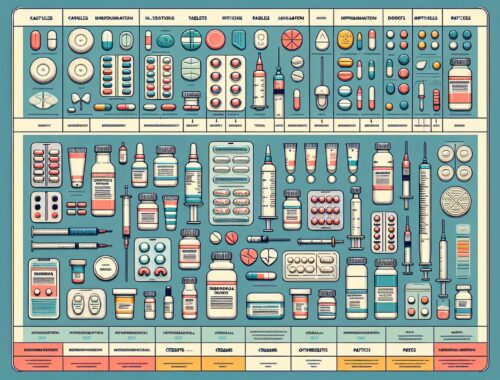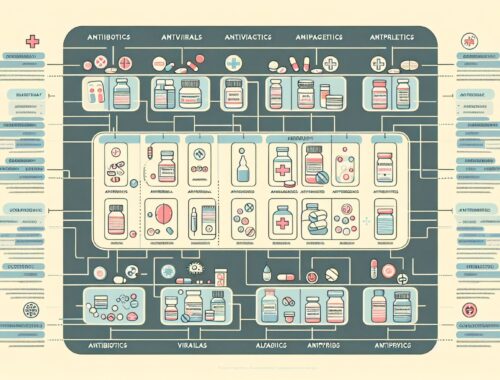
Different Types of Medicines: A Comprehensive Guide
Introduction:
When it comes to healthcare and the treatment of various ailments, medicines play a vital role. Medicines come in different forms and consist of various active ingredients designed to target specific diseases or symptoms. In this article, we will explore the different types of medicines and their applications in healthcare.
Body:
1. Over-the-counter (OTC) Medicines:
– OTC medicines are readily available without a prescription and are used to treat common ailments like headaches, colds, allergies, and heartburn.
– These medicines are regulated by government authorities to ensure their safety and efficacy.
– Examples include pain relievers (e.g., acetaminophen, ibuprofen), antihistamines (e.g., loratadine, cetirizine), and antacids (e.g., Tums, Pepto-Bismol).
- Prescription Medicines:
- Prescription medicines are only dispensed with a valid prescription from a healthcare professional.
- These medicines are often more potent and target specific conditions that require professional diagnosis and supervision.
-
Examples include antibiotics (e.g., amoxicillin, azithromycin), antidepressants (e.g., sertraline, fluoxetine), and hypertension medications (e.g., lisinopril, metoprolol).
-
Vaccines:
- Vaccines are composed of weakened or inactivated pathogens or their components, which stimulate the immune system to build up immunity against specific diseases.
- Vaccines play a crucial role in preventing infectious diseases, such as influenza, measles, hepatitis, and polio.
-
Examples include the flu vaccine, MMR vaccine (measles, mumps, rubella), and the COVID-19 vaccines.
-
Topical Medicines:
- Topical medicines are applied externally to the skin, mucous membranes, or affected areas for localized treatment.
- They are commonly used to relieve pain, itching, inflammation, or to treat skin conditions.
-
Examples include creams, ointments, gels, and patches, such as anti-inflammatory creams, antifungal creams, and lidocaine patches.
-
Herbal and Alternative Medicines:
- Herbal and alternative medicines often derive from natural sources, including plants, minerals, and animal products.
- These medicines are believed to have therapeutic effects, though their scientific evidence may vary.
- Examples include herbal supplements (e.g., ginkgo biloba, turmeric), homeopathic medicines (e.g., Arnica montana, Calendula officinalis), and traditional Chinese medicines (e.g., ginseng, acupuncture).
Conclusion:
Medicines come in various forms and are used for different purposes in healthcare. From over-the-counter options to prescription drugs and vaccines, each type serves unique roles in treating ailments or preventing diseases. Whether you seek relief from a headache or require specialized treatment for chronic conditions, medicines are designed to improve our well-being and enhance the quality of life. It’s essential to consult healthcare professionals for appropriate medication advice, ensuring safe and effective treatment.
You May Also Like

The Different Types of Medicines
April 3, 2024
Understanding the Different Types of Medicines
April 21, 2024

